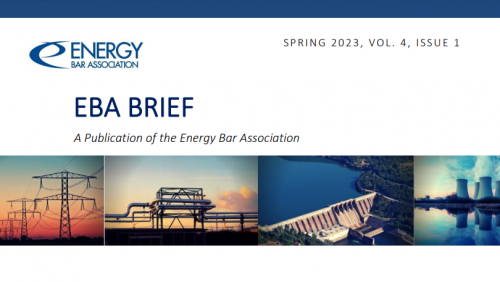The Supreme Court’s recent applications of the major questions doctrine have prompted numerous challenges to pending or proposed regulatory actions, including the Federal Energy Regulatory Commission’s (FERC’s) proposed revisions to Order No. 1000’s regional transmission-planning and cost-allocation rules (Transmission Rulemaking) and updated draft policy statements on certification of new interstate natural gas facilities (Draft Policy Statements).
This article addresses the impact of West Virginia v. EPA—the most recent Supreme Court case involving the major questions doctrine—on FERC’s regulatory authority. It explains that, to determine whether the major questions doctrine applies, West Virginia’s framework asks whether the action (1) is “unheralded” and (2) represents a “transformative” change in the agency’s authority. If the answer to these questions is yes, the agency must point to “clear congressional authorization” for its action. Under that analysis, FERC’s Transmission Rulemaking and Draft Policy Statements should not trigger the doctrine because they are neither unheralded nor transformative.
While the West Virginia majority opinion seems to cabin the doctrine, Justice Gorsuch’s concurring opinion tries to expand it by (1) introducing factors for triggering the doctrine that the majority opinion omits and (2) recasting the doctrine as a clear-statement rule. Perhaps most troubling for FERC is Justice Gorsuch’s reliance on “‘intru[sion] into an area that is the particular domain of state law’” as an additional factor that may trigger the major questions doctrine. Drawing on that statement, 17 States have argued that FERC’s Transmission Rulemaking triggers the doctrine because it “implicates” the jurisdictional divide in the Federal Power Act (FPA) between state and federal authority. Others have lobbed similar arguments at the Draft Policy Statements, citing the jurisdictional divide in the Natural Gas Act (NGA).
But there is already a well-established body of case law delineating the divide between federal and state jurisdiction in the FPA and the NGA. Inserting state interests into the major questions doctrine risks muddying that longstanding divide and creating uncertainty for FERC’s authority.

